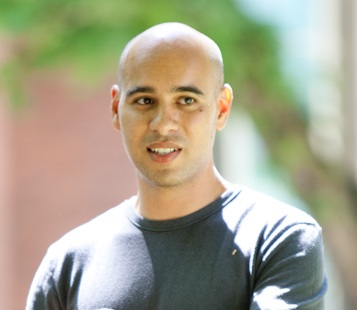Too much to do, not enough time.
This is a perpetual problem for a lot of people, but it seems to be especially pronounced during the holidays. With holiday events, shopping, travel, family visiting … things tend to pile on top of our already busy lives.
But no matter what time of year it is, the problem is the same: our list of tasks is neverending, and our days are too short.
How can we deal with this in a sane way?
I’ll offer five suggestions that work for me.
1. Use this as an opportunity to practice mindfulness. In the middle of your stress and feeling of being overwhelmed … you have the opportunity to be present. When you notice yourself feeling this way, drop in: notice how your body feels. Take a second to observe the physical sensations of your surroundings (sounds, light, touch sensations, etc.). Notice how your body feels as your mind is spinning with anxiety or busyness.
No, stress and overwhelm are not the two most pleasant feelings, but they’re also not the end of the world. And if you see them as an opportunity to practice, to learn, to get better, then they can actually be good news. They are your teachers, and this is your time to be mindful.
You don’t have to spend a whole minute dropping in, but just take five or 10 seconds. Just observe how you’re feeling, observe your surroundings, observe how your thoughts are affecting you. Just notice, briefly, and in that short time, you’ve woken up from the dream we’re in most of the time.
2. Realize that you can’t do it all right now. You might have 20 things to do, or 100 … but you can’t do all of them right now. You probably can’t do them all in the next hour even. How many can you actually do right now? One.
This reminder is meant to free us from the idea that we need to do everything right now. We can’t. So instead, this allows us to focus on just one thing. Just pick one task, and focus on that. Because the others, as urgent as they might seem, can’t possibly be done right now. You can delegate them, eliminate them, defer them, but you can’t do them all right now. So focus on one, and give it your full attention. This is the most helpful way to work, in my experience.
3. Pick a high impact task to focus on. When we’re busy, we often get into the mode of doing a lot of small tasks really quickly. It feels like we’re knocking a lot of things off the list, which can feel productive. But it’s just running around like a chicken without a head.
If you’re going to focus on just one task, it’s best to make it a good one. Something that will have a decent impact on your day, your work, your life. That probably isn’t answering a bunch of unimportant emails or checking Facebook messages. One important email that will close a deal, move along a key project, help someone’s life … that’s a higher impact task. For me, writing is almost always the highest impact thing I can do. It’s hard to figure out what the highest impact task might be, but if you give it some thought, you can see which ones are probably not that important, and which ones are more important. Pick one from the latter category when you can.
That said, you still have to do the smaller tasks. Answer the other emails, run the errands, clean the kitchen counter. I like to take care of those between the bigger tasks, as a way to take a break. Do something important with focus, then relieve my brain by cleaning or answering a few emails. The key is not to procrastinate on the bigger tasks by doing the smaller ones.
4. Be present with this task, with intention. Once you’ve picked an important task, set aside everything else for now. You can’t do them all now, so be here with the one you’ve chosen. Breathe. Set an intention for this task: who are you doing this for, and why? For me, I am often doing my work tasks for you guys (my readers), but I do personal tasks for my family or to help myself. Set a simple intention: I’m writing this article to help my readers who are struggling.
Then let that intention move you as you focus on the task. Be present with the task, noticing how your body feels as you do the task, letting yourself melt into the doing of it, pouring yourself into it as fully as you can. You might get the urge to switch to something else — just notice that and stay with the urge, not letting yourself follow it unthinkingly, then return to the task when the urge subsides. Remember your intention, then let yourself be fully immersed in the task.
5. Practice letting go, with a smile. Having too much to do, and wanting to get it all done as soon as possible … can actually get in the way of doing. This desire to get it all done is an obstacle. Luckily, it’s a great practice to work with this obstacle!
The practice is letting it go. Notice what you think you need to do (your ideal), and let go of it. Instead, tell yourself you don’t know, and instead be open to the reality that’s right in front of you: you can only do one task. Be open to that idea, and the stress will be lowered.
And as you let go of your ideal and open to the reality, smile. Be grateful for the moment you actually have, rather than wishing for the one you don’t have. Smile, and be happy now, rather than waiting for happiness to come at some unspecified date.
In the end, will these suggestions clear away your to-do list? No. You’ll always have a lot of things on your list, and not enough time to do them all. What this does is help you to deal with that fact, and make you more mindful and focused in the middle of that reality.
Life is too short to spend most of it stressed out by an unchangeable fact. We don’t have to waste our time and mental energy worrying about too much to do. Instead, we can smile and be happy doing what we can do now.
Originally published at zenhabits.net


